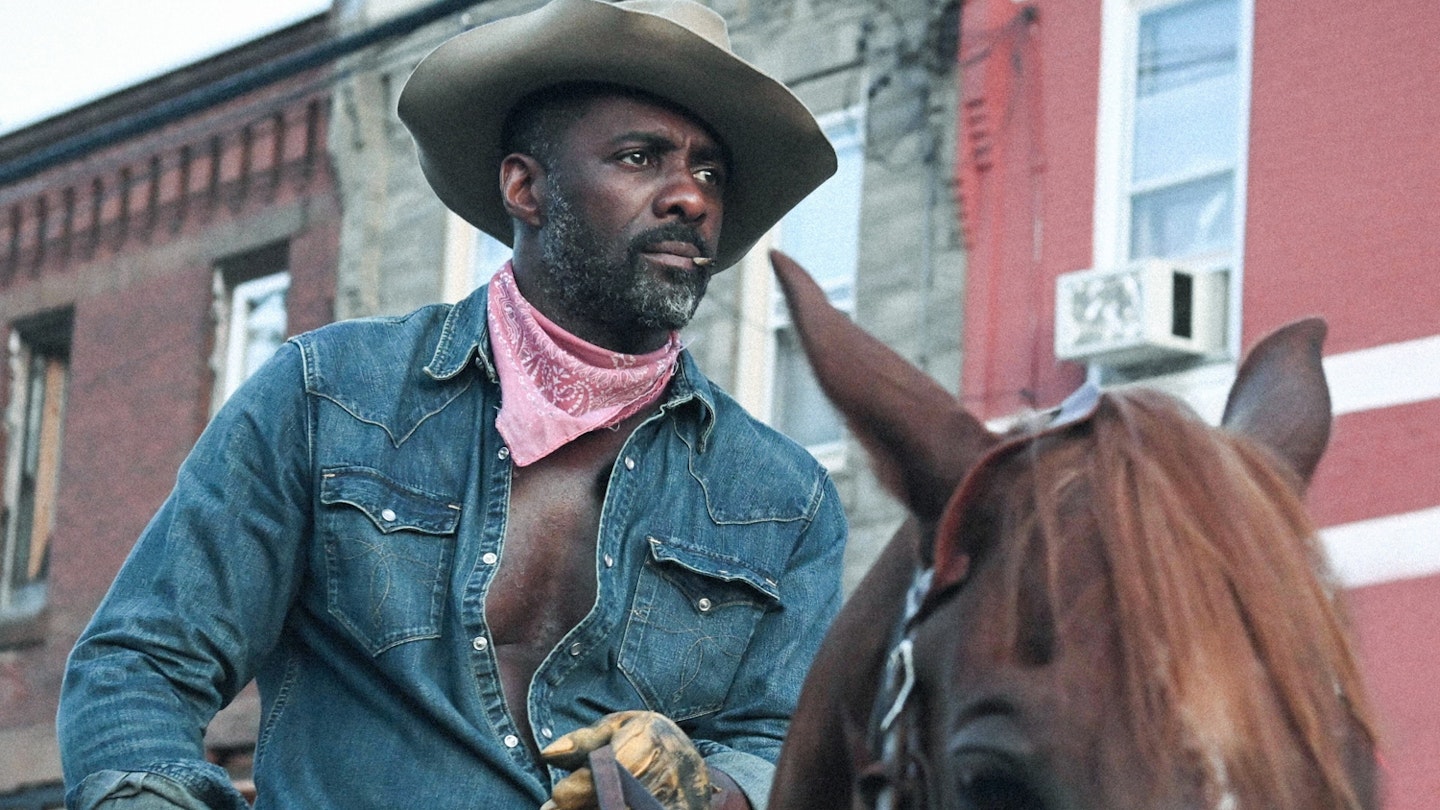At one point during Concrete Cowboy, a group of contemporary Black men and women, pointedly sitting around a campfire, discuss the ways African-Americans have been mostly whitewashed out of the Hollywood Western. It’s a telling moment. Ricky Staub’s debut feature showcases the little-known history of Black inner-city horsemen in Philadelphia, where cowboy practices and attitudes have been handed down for 100 years, and frames it through the prism of a father-and-son-connection story. It doesn’t all work, but it’s an impressive first feature, full of strong performances, an evocative sense of place and poetic, vibrant filmmaking.

It starts conventionally enough. Facing expulsion from his Detroit school for bad behaviour, 15-year-old Cole (Stranger Things’ Caleb McLaughlin) is sent packing by his mother Amahle (Liz Priestley) to live with his estranged cowboy father Harp (Idris Elba). Initially recalcitrant, Harp falls into the world of Fletcher Street Stables, mucking out manure and bonding with dangerous horse Boo, while also being pulled into the local drug-dealing network by cousin Smush (Moonlight’s Jharrel Jerome), something that brings Cole into conflict with his father.
After playing characters called Stacker Pentecost, Heimdall, Brixton, and Macavity, it’s refreshing to see Elba as a real human being.
These ideas — of a broken kid finding a new purpose via a broken animal, of a character caught between a life of purity and a life of crime, of a father trying to stop his son making the same mistakes he has — are well worn, but Concrete Cowboy makes them work by giving space to its characters to live and breathe. McLaughlin does excellent work as Cole, by turns passive and frenetic, and it’s great to see Elba, a cigarillo permanently between his lips, have fun with Western archetypes while still making Harp believable — after playing characters called Stacker Pentecost, Heimdall, Brixton, and Macavity, it’s refreshing to see him as a real human being. The film also gets great mileage from real-life Fletcher Street riders who give nuanced performances as big influences on Cole’s new life: chiefly Jamil Prattis as Paris, who helps Cole learn the shit-shovelling ropes, and Ivannah-Mercedes, who perfectly underplays the potentially bland love-interest role, Esha.
As well as its dominant Western feel, the film adds different genre notes from the crime movie (a thrilling foot-chase) and a late-in-the-day heist, all building to a climax that sadly feels a little rote. But it’s a promising first work, full of impeccable craft, from Minka Farthing-Kohl’s cinematography, that combines beautiful lyricism with handheld dynamism, to Kevin Matley’s score that subtly combines Wild West flavours with more unusual textures (a theremin). Its meaning isn’t always clear — it fudges an idea that, like their horses, these Black cowboys need freedom, but has no view on what that looks like — but it is a well-made spotlight on a rarely seen sub-culture.
